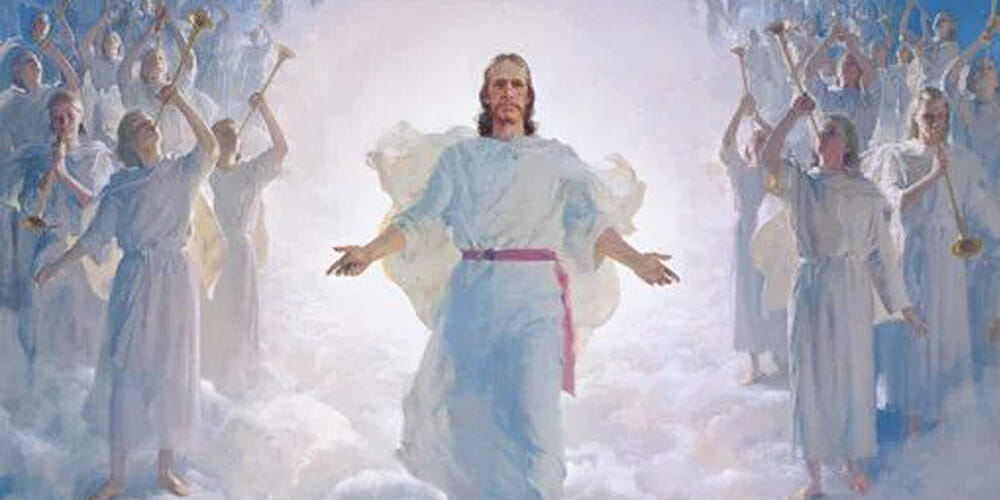‘Once Upon a Deadpool’ ad borrows image of Jesus created by Anderson for LDS Church

The idea may seem as surreal as many of the cinematic products Hollywood churns out weekly, but a 50-year-old painting by noted Seventh-day Adventist artist Harry Anderson is at the center of a controversy over a new film.
Anderson, who passed away in 1996, was a freelance artist who created many notable works for the Review and Herald Publishing Association, one of the Adventist Church’s principal media operations. Beginning in the 1960s, Anderson also executed artistic commissions for the Church of Jesus Christ of Latter-day Saints (LDS), also known as the Mormon Church.

That image, it seems, forms the basis for a poster promoting the movie “Once Upon a Deadpool,” part of the Marvel comics movie franchise. In the place of Jesus, the Deadpool character is seen in a white robe, surrounded by acolytes presumably from the film. “Yule Believe in Miracles” is the advertising slogan for the film, which opened in movie theaters on December 12.
Fans, particularly in the state of Utah, where the Mormon Church is headquartered, quickly noticed the similarities and just as quickly protested the move. An online petition calling for the Deadpool poster’s withdrawal has garnered more than 38,000 signatures, media reports indicate.
According to London’s Daily Mail newspaper, one online signer asserted the poster showed “really poor taste. I am a big fan of satire, but it’s a sad waste of talent when an organization with a large audience uses their power and position to publicly and deliberately mock the beliefs of others.”
Others were less perturbed. Author and Mormon scholar Jana Riess, blogging at Religion News Service, urged her co-religionists to “just get over” the controversy. Riess noted the painting’s 1960s vibe and its creation by Anderson, an Adventist.
“So it’s a painting by a non-Mormon that is associated in Mormon minds — but not necessarily the minds of the rest of the world — with the Church of Jesus Christ of Latter-day Saints,” Riess wrote. “I find it unlikely that someone in Hollywood chose this painting because they said, ‘Hey! Let’s go throw shade on some Mormons today!’”
“Popular culture regularly deconstructs and appropriates religious themes and symbols to its own purposes,” explains Gary Krause, director of Adventist Mission at the General Conference of Seventh-day Adventists. “In our postmodern environment, everything from high-end art to tattoos to crosses around rock star necks subvert and diminish sacred images and themes.”
While it is highly unlikely that the online petition will change marketing practices in Hollywood, the kerfuffle has drawn renewed attention to the work of Anderson, whose commercial art career took off in the middle of the 20th century. He created numerous magazine covers for Ladies’ Home Journal and other magazines, as well as advertising for Cream of Wheat cereal and other national brands. An adult convert to Adventism, Anderson accepted biblical artwork commissions from the LDS Church but would not create scenes related to the Book of Mormon, which Mormons view as scripture.
Anderson, whose work for the Seventh-day Adventist Church and its publications retains an iconic place in the movement’s history, was a faithful church member until his passing at age 90. In 2016, the LDS Church History Museum in Salt Lake City staged an exhibit of Anderson’s preliminary sketches for several of his paintings, and the exhibit noted Anderson’s affiliation with Adventism. Members of Anderson’s family attended the exhibit’s opening, which drew crowds of Mormons who also remembered the late artist’s works.








